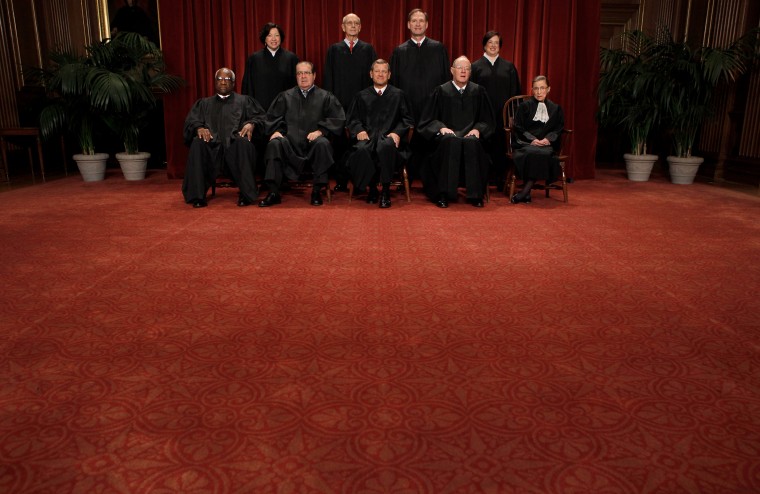The Supreme Court has agreed to settle a question that has split the federal courts and the nation's political culture: Do corporations have religious liberty, and, if they do, does required coverage of birth control under the Affordable Care Act violate it?
In an order issued Tuesday, the Court said it would take up a case brought by the Oklahoma City-based craft store chain Hobby Lobby, in which the Tenth Circuit Court of Appeals said contraceptive coverage was a violation of religious liberty, regardless of the fact that Hobby Lobby is a corporation and not an individual. At the same time, the Court will hear a case brought by the Mennonite cabinet maker Conestoga Wood Specialties, in which the Third Circuit said that corporations don't have religious liberty.
At issue is a requirement under the Affordable Care Act that nearly all private insurance plans cover contraception as preventative care, without cost-sharing. Forty-three companies have sued the Obama administration, claiming a religious objection to birth control and saying the requirement violates either or both the First Amendment and the Religious Freedom and Restoration Act. They have so far been met with conflicting answers from the lower courts, making it all but inevitable that the Supreme Court would step in.
"We believe this requirement is lawful and essential to women’s health and are confident the Supreme Court will agree," the White House said in a statement. "As a general matter, our policy is designed to ensure that health care decisions are made between a woman and her doctor. The President believes that no one, including the government or for-profit corporations, should be able to dictate those decisions to women."
Speaker of the House John Boehner, a Republican, said, "The administration’s mandate is an attack on religious freedom, and I’m hopeful it will be reversed by the Court."
The two cases chosen by the Court show starkly different conclusions on whether corporations have religious liberty. The Tenth Circuit Court of Appeals claimed in its Hobby Lobby decision that "such corporations can be 'persons' exercising religion for purposes of the statute." The Third Circuit was equally definitive in the other direction: "For-profit secular corporations cannot exercise in religious exercise."
The Obama administration has argued that the government has a compelling interest in public health and in gender equality, and that “an employee’s decision to use her health coverage to pay for a particular item or service cannot properly be attributed to her employer.”
Religious institutions, including churches, are already exempted from the provision. And religiously affiliated non-profit organizations have a work-around that allows employees to get coverage directly from the insurer.
About 27 million women are already benefiting from birth control coverage without cost-sharing. If the Court rules that some employers can be exempt out of deference to their religious freedom, it would potentially open the door not only to their employers losing coverage, but also to future claims that companies should be able to opt out of other generally applicable labor regulations for religious reasons.
